Stella McCartney’s Sustainable Market for Spring 2024
The British Fashion Designer Spotlights Her Partner's In Sustainability
Stella McCartney set up her 2024 spring ready-to-wear show at the Marché Saxe-Breteuil. The location is usually home to a popular open-air market on Thursdays and Saturdays, with vendors selling fresh produce, fish, cheese, bread, and flowers.

Instead, on October 3rd, with the Eiffel Tower serving as a backdrop, there were 21 market stalls, each participating to inspire and educate attendees on sustainable materials and circular fashion. Among those presenting during her 2024 show were LVMH-owned deadstock platform Nona Source, vegan leather supplier Mabel Industries, plant-based leather manufacturer Natural Fiber Welding (NFW) and traceable wool supplier Nativa. The occasion was part of Paris Fashion Week, where the designer unveiled a slew of ready-to-wear looks, from flowing dresses to tailored suits.
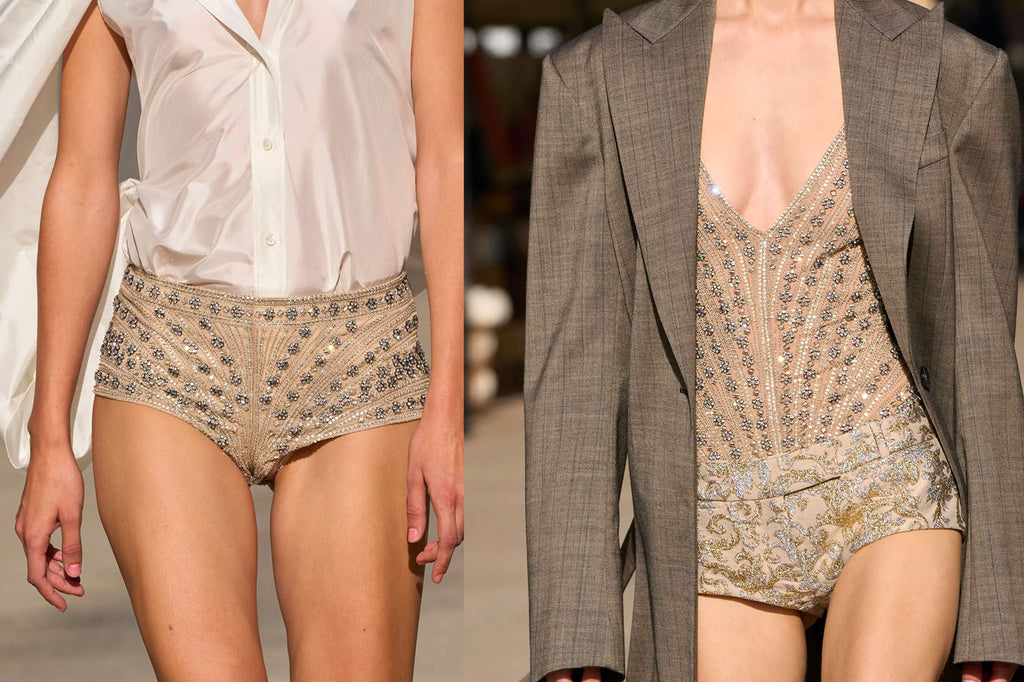
Honouring her rockstar heritage
The fashionable event saw stashes of vintage Stella McCartney clothes, stacks of old records, and a merch stall dedicated to Wings, her mum and dad's band. After the show, the market opened to the public, and all proceeds raised from sales will go to charities aligned with McCartney's anti-animal cruelty and responsible design philosophies.
The Wings booth was at the heart of Stella McCartney's latest collection. Her spring-summer looks explored her parents, Paul and Linda McCartney's, complementary style. A quick Google dive reveals that the much-photographed couple often dressed alike, whether in 70s pantsuits, matching satin baseball jackets, or tailored trenchcoats.
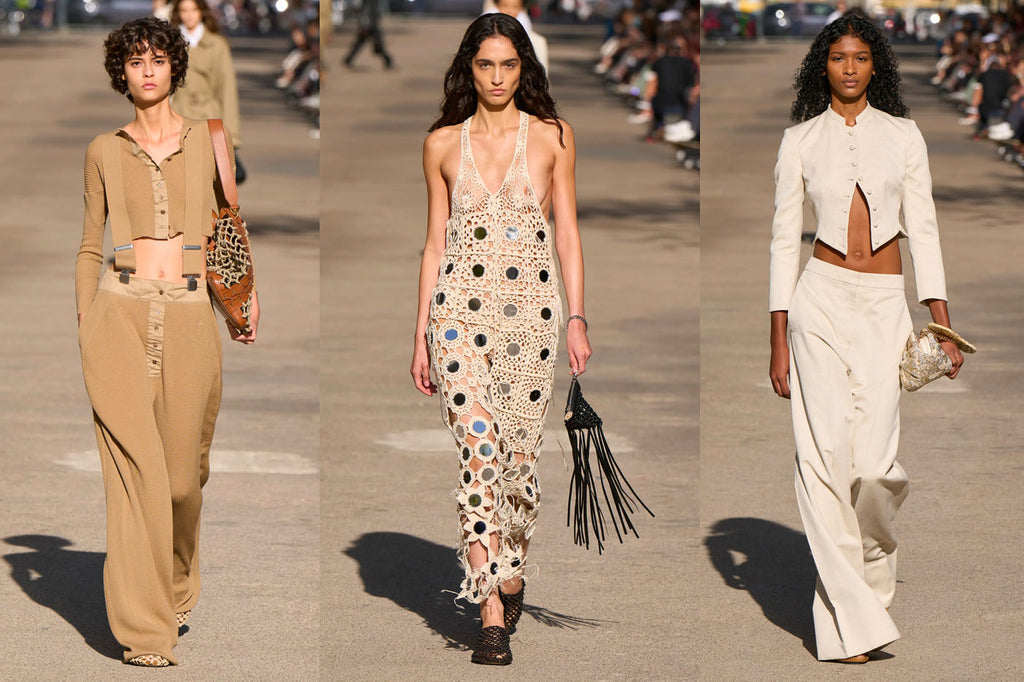 Stella McCartney evoked her famous parents' iconic style through modern eyes. The mirror-embellished dresses crocheted from Keel Labs's seaweed-based yarn Kelsun and worn by both genders tapped into her rebellious streak. Elsewhere, the cape-like backs of tops and dresses made with taffeta from Nona Source, the LVMH-backed deadstock platform, seemed to have been designed to evoke wings, while the brocade short-shorts looked like stage-ready tour costumes.
Stella McCartney evoked her famous parents' iconic style through modern eyes. The mirror-embellished dresses crocheted from Keel Labs's seaweed-based yarn Kelsun and worn by both genders tapped into her rebellious streak. Elsewhere, the cape-like backs of tops and dresses made with taffeta from Nona Source, the LVMH-backed deadstock platform, seemed to have been designed to evoke wings, while the brocade short-shorts looked like stage-ready tour costumes.
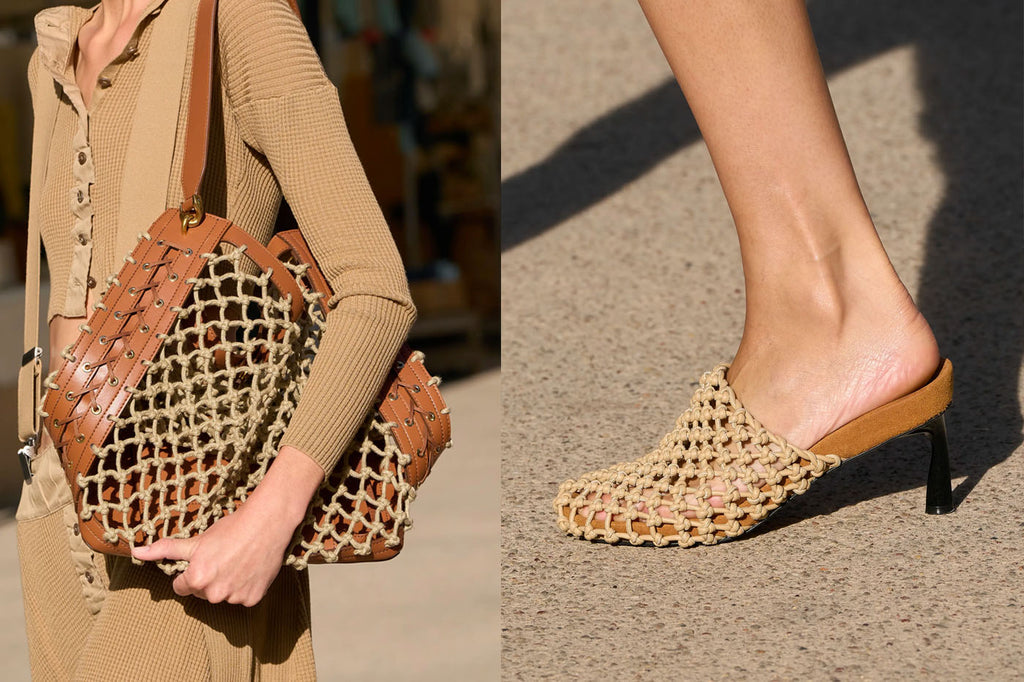
Can a luxury fashion brand be sustainable?
There's an inherent paradox to being a "sustainable" luxury fashion brand. Of course, the most sustainable thing to do would be not to make anything new and instead use or repurpose what's already out there—but that's not how running a fashion brand, which lives and dies on new seasonal collections, has historically worked. The more ethical approach Stella McCartney has taken is material innovation: piloting, investing in, and playing around with emerging textiles and fabrication methods that might not cancel out the impact of six collections annually but work towards making that output as least harmful as possible.
McCartney's press notes stated that 95% of the materials in the collection are "conscious materials"—the label's most conscious collection to date. There's a growing consensus that sustainability no longer needs to be part of the conversation, that it's a given. That couldn't be further from reality. Stella McCartney is strides ahead in luxury fashion's sustainability efforts. The British fashion house is one of only a few luxury designers whose collection is created nearly entirely from conscious materials.
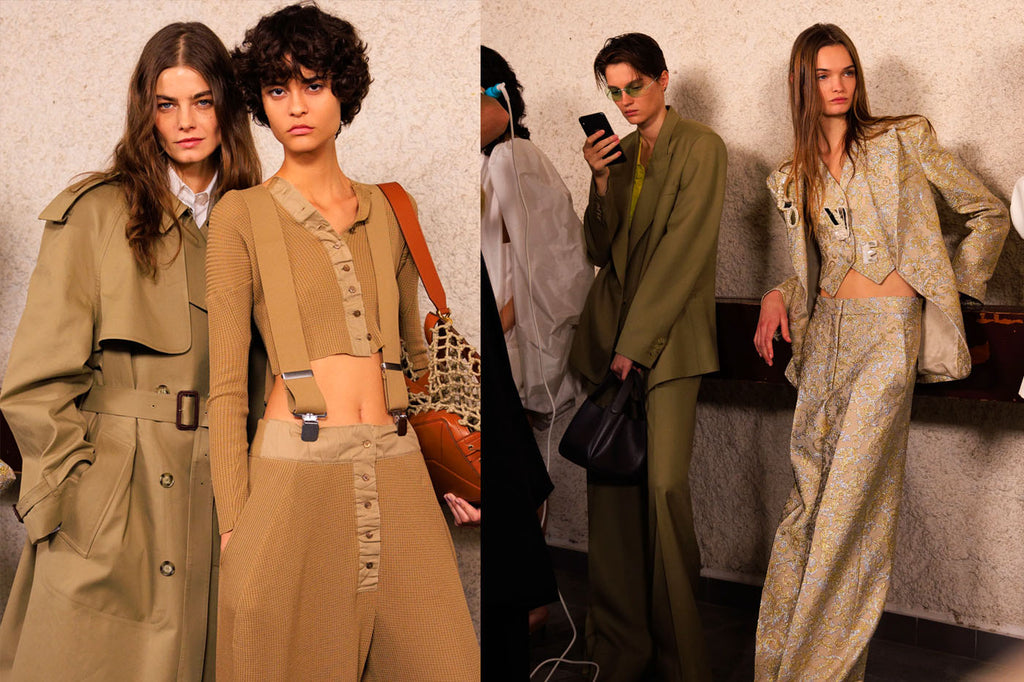
Sustainable alternatives becoming the standard
In a press release for the event, Nativa's global sales and marketing director, Maria Estrada, said: "Today's presentation by Stella McCartney not only highlighted our partner's commitment to sustainable and circular fashion but also provided suppliers like Nativa with an opportunity to explain and showcase the valuable work we all do to a much broader audience. Nativa is thrilled to work with such a supportive and dedicated designer."
Many of the market's participants are current McCartney brand partners. Nona Source, for example, supplies deadstock fabric for a range of the designer's collections. The company made its runway debut with the label for AW23 when its leather alternative, Mirum, was used to produce McCartney's iconic Falabella and Frayme bags.

This was also true for Kelsun, which provided its seaweed-based yarn for McCartney's knitted dresses for SS24, some of which came complete with mirrored detailings that were hand-crocheted into the silhouettes. In a statement to Vogue Business, Kelsun said: "I'm hoping I can use my runway show as a platform to raise awareness for some of the innovators we work with as well as others who are doing amazing things. Success looks like these sustainable alternatives becoming the standard. We absolutely need to support these innovators, or they will not make it."
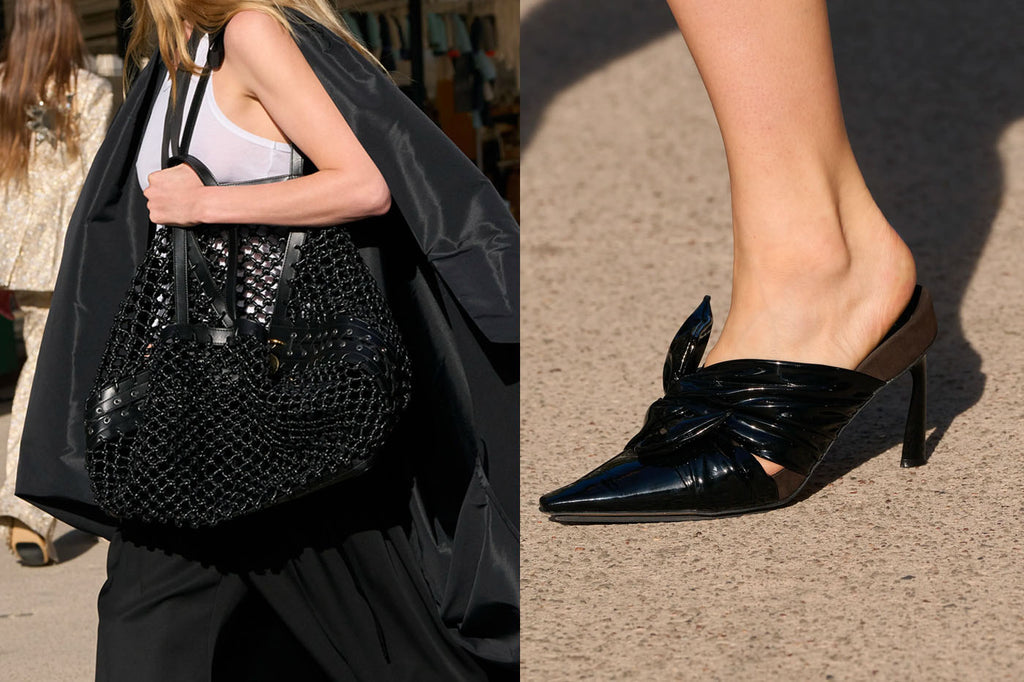
The line was one of McCartney's most personal yet. The collection further explored her roots in music, paying homage to her famous parents. Many of Stella McCartney's spring-summer 2024 looks were reinterpretations of archival styles and looks she borrowed from her family.
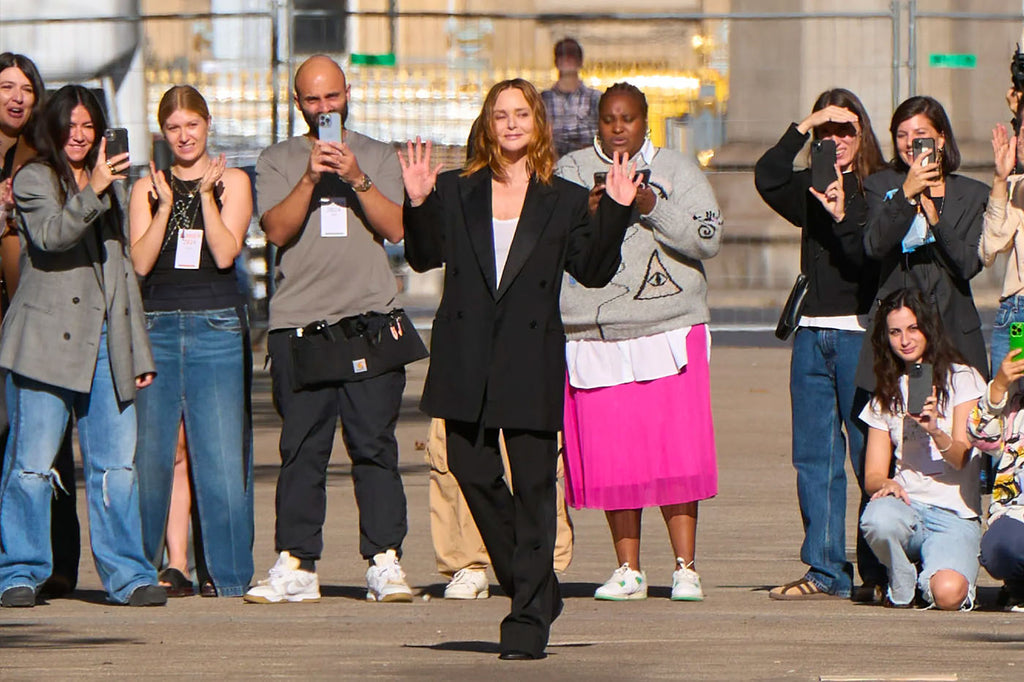 Gen Woo continually seeks to improve sustainable fabric choices
Gen Woo continually seeks to improve sustainable fabric choices
Like Stella McCartney, Gen Woo is also a brand committed to making better choices. Focusing heavily on fabric selection, in the brand's early days, Gen Woo sourced deadstock fabric to create her designs, using only waste materials. To this day, she continues to use deadstock alongside as much sustainable fibre as possible. From recycled, organic and BCI cotton to FSC viscose, Tencel, linen and bamboo—the family run factory where the brands clothes are produced is certified by Cotton Made in Africa and the Organic Exchange Programme.
Responsibility, community, positivity and freedom lie at the heart of Gen Woo. Part of a family-run business with a thirty-year history of making quality clothing, all Gen Woo pieces are produced in their own accredited factory, which promotes a safe, inclusive and fair working environment for all workers, recognised through several accreditations and certifications.
From seasonless styles to ethical fabric choices, the Singapore-based sustainable fashion brand aims to position itself at the forefront of slow fashion. For further reading on Gen Woo's stance on environmental issues, visit our journal and sustainability content. To be part of our story, sign up for our newsletter now to access exclusive deals and more.
GEN WOO x








